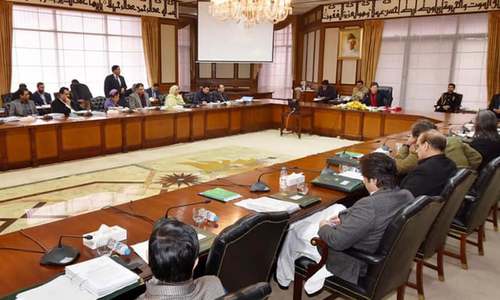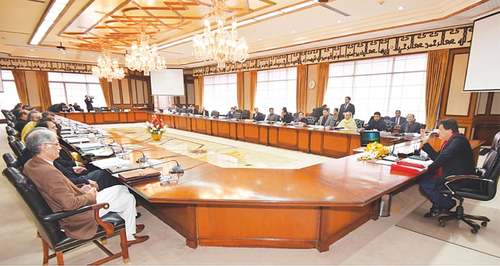Would send people to Haj for free if country didn't have so many debts: PM Khan

Prime Minister Imran Khan on Tuesday called out those who criticised the Pakistan Tehreek-i-Insaf-led government for withdrawing the subsidy on Haj for this year.
Addressing a ceremony after inaugurating the Railway Live Tracking System and the Thal Express service in Islamabad, the premier — apparently referring to opposition parties — said "these people" ask why the government did not provide a Haj subsidy or make performing the Islamic ritual more affordable.
"If you hadn't left the country in this condition [and] if we didn't have so many debts, then we would certainly send pilgrims [to Haj] for free," Khan said, addressing his critics from the previous governments.
His statement comes on the back of a cabinet-approved 63 per cent increase in the cost of Haj which was met with backlash from opposition lawmakers.
On January 31, the federal cabinet had announced the Haj Policy 2019 under which the cost of performing the ritual under the government scheme has been fixed at Rs456,426 (with qurbani), against last year’s expense of Rs280,000 per person. Every individual would now have to pay an additional Rs176,426.
Following this, opposition parties in the Senate had rejected the increase in Haj costs.
Prime Minister Khan today said the government would have fully helped people "who saved money all their lives to go for the pilgrimage" but was constrained in its support due to soaring debts.
He maintained that, on one hand, the government is taking loans to repay the instalments of loans that previous governments had taken and on the other hand, members of the same past administrations were criticising the withdrawal of the Haj subsidy.
The premier suggested that if the government was to spend money on subsidies, it could provide the same to cancer and hepatitis patients, or out-of-school children, instead of pilgrims.
"When a man is in debt he thinks about what he can spend his money on," he analogised.
The prime minister once again attributed the country's economic troubles to corruption, saying in the past people had no fear of being corrupt.
"No one had any fear in the past ten years because after NRO (National Reconciliation Ordinance)-one and NRO-two, everyone's fear went away," he said, adding that people did not think they would be caught in Pakistan.
He noted that the country's debt had gone up from Rs6,000 billion to Rs30,000bn over the past ten years.
He said the country was going through difficult times while paying Rs6bn in daily interest on the debt that previous governments had accumulated.
The premier also asked Railways Minister Sheikh Rashid to look into the alleged corruption and theft that had taken place in the railways and refer the cases to the National Accountability Bureau (NAB).
He said the government was looking into the levels of corruption that had taken place in every area and explained that it was important to share this information with NAB "so that people become fearful and scared of committing corruption".












































